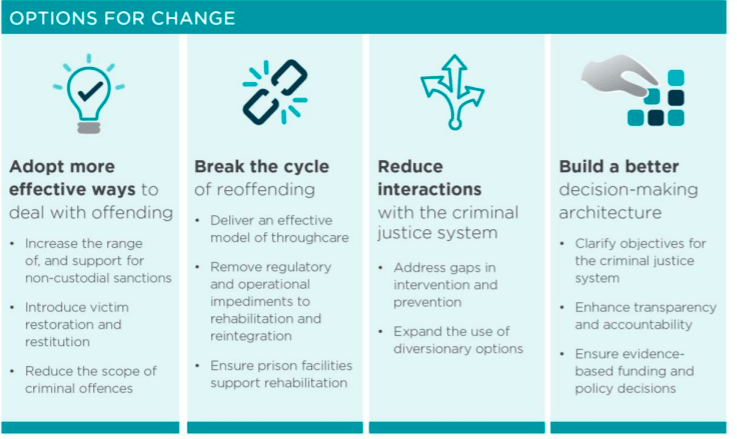The Trump Presidency And Cheap Oil: An Examination Of Policy And Impact

Table of Contents
Trump Administration's Energy Policy and its Impact on Oil Prices
The Trump administration's approach to energy policy significantly influenced oil prices. A key component was a focus on deregulation and the promotion of fossil fuels.
Deregulation and its Effects
The administration pursued a strategy of deregulation across various sectors, aiming to boost domestic oil production. This included:
- Rollback of Environmental Regulations: Easing restrictions on emissions and environmental impact assessments streamlined the permitting process for oil and gas projects.
- Streamlined Permitting Processes: Reduced bureaucratic hurdles accelerated the development of new oil and gas reserves.
- Increased Domestic Oil Production: These measures contributed to a surge in US oil production, transforming the country into a major global energy player.
- Impact on Global Oil Prices: The increased supply of oil from the US exerted downward pressure on global oil prices, leading to periods of relative affordability.
- Environmental Consequences and Counterarguments: While proponents argued deregulation fostered economic growth and energy independence, critics raised concerns about the environmental consequences, including increased greenhouse gas emissions and potential damage to ecosystems. Counterarguments often highlighted the economic benefits of cheap energy and the administration's focus on cleaner energy technologies in parallel.
Emphasis on Fossil Fuels
The Trump administration prioritized fossil fuels, including oil and natural gas, over renewable energy sources like solar and wind power.
- Impact on Oil Exploration, Extraction, and Consumption: This preference translated into increased investment in oil exploration, extraction, and refining infrastructure, further boosting domestic production and contributing to lower prices.
- Implications for Long-Term Energy Security and Climate Change: The long-term implications of this focus on fossil fuels remain a subject of intense debate, with concerns raised about energy security vulnerabilities stemming from reliance on a finite resource and the exacerbation of climate change.
International Relations and Oil
The Trump administration's foreign policy also had implications for oil prices.
- Approach to OPEC and Other Oil-Producing Nations: The administration's approach to OPEC, the Organization of the Petroleum Exporting Countries, varied, sometimes engaging in diplomatic pressure to increase production, other times prioritizing national interests.
- Sanctions and Agreements Impacting Global Oil Supply and Price: Sanctions imposed on certain oil-producing nations influenced global supply, creating both price increases and decreases depending on the target and the overall market conditions.
- Geopolitical Implications: The administration's actions in the Middle East and elsewhere had significant geopolitical ramifications, creating both stability and instability in oil markets, further impacting prices.
Economic Factors Influencing Oil Prices During the Trump Presidency
While the Trump administration's policies played a role, other economic factors significantly influenced oil prices during this period.
Global Demand
Global economic growth is a major driver of oil demand.
- Impact of Global Economic Growth on Oil Demand: Periods of strong global economic growth, particularly in major economies like China and India, led to increased demand for oil, potentially pushing prices upward. Conversely, economic slowdowns or recessions reduced demand, contributing to lower prices.
- Role of Major Economies: The fluctuating economic performance of major oil-consuming nations (China, India, the EU, and the US) played a crucial role in influencing the overall demand and, consequently, the price of oil.
Technological Advancements
Technological advancements in oil extraction significantly impacted both supply and cost.
- Influence of Fracking and Other Technological Advancements: Fracking (hydraulic fracturing) and other technological breakthroughs substantially lowered the cost of oil extraction, increasing the supply of oil and putting downward pressure on prices.
- Impact of Technological Innovation on the Cost of Oil Extraction: These innovations made previously inaccessible reserves economically viable, leading to a significant expansion of global oil production.
Speculation and Market Volatility
Market speculation and unforeseen global events also influenced oil price fluctuations.
- Role of Speculation and Market Forces: Speculative trading and investment in oil futures contracts can create price volatility, irrespective of underlying supply and demand dynamics.
- Major Market Events Impacting Oil Prices: Geopolitical instability in oil-producing regions, trade wars, and unexpected economic shocks (like the COVID-19 pandemic) caused substantial shifts in oil prices.
Assessing the Overall Impact: Cheap Oil and the Trump Legacy
The impact of "cheap oil" under the Trump presidency was multifaceted, presenting both advantages and disadvantages.
Economic Benefits of Cheap Oil
Lower oil prices translated into several positive economic impacts:
- Lower Gasoline Prices: Consumers benefited from reduced transportation costs.
- Increased Consumer Spending: Lower energy costs freed up disposable income for consumers, potentially stimulating economic activity.
- Benefits to Specific Industries: Industries heavily reliant on oil, like transportation and manufacturing, experienced reduced input costs.
Negative Consequences of Cheap Oil
However, cheap oil also carried potential downsides:
- Reduced Investment in Renewable Energy: Low oil prices reduced the economic incentive to invest in renewable energy sources.
- Environmental Concerns: Increased fossil fuel consumption exacerbated environmental concerns relating to air and water pollution and climate change.
- Risks to Energy Security: Over-reliance on a single energy source could expose the economy to future price volatility and supply disruptions.
Long-Term Sustainability
The long-term sustainability of the policies pursued during the Trump presidency remains a key area of discussion and debate. The emphasis on fossil fuels, while benefiting from short-term economic advantages through cheaper oil, might lead to long-term challenges related to climate change and energy independence.
Conclusion: The Trump Presidency and Cheap Oil: A Lasting Impact?
The relationship between the Trump presidency and cheap oil was complex, shaped by a confluence of deliberate policy choices, broader economic trends, and global events. The administration's emphasis on deregulation and fossil fuels, coupled with technological advancements and fluctuating global demand, contributed to periods of relatively low oil prices. However, the long-term consequences of this approach, including environmental concerns and energy security risks, require careful consideration. Further research into "Trump's energy legacy and oil prices," the "impact of Trump's policies on oil," and "understanding cheap oil under the Trump presidency" is vital to inform future energy policy debates and ensure a sustainable energy future.

Featured Posts
-
 The Chaplin Effect How Ipswich Town Achieves Victory
May 12, 2025
The Chaplin Effect How Ipswich Town Achieves Victory
May 12, 2025 -
 Fun Takes Flight At Flights Your Guide To Joyful Travel
May 12, 2025
Fun Takes Flight At Flights Your Guide To Joyful Travel
May 12, 2025 -
 Analyse Du Dechiffrage La Stabilite De L Euro En Periode De Tension
May 12, 2025
Analyse Du Dechiffrage La Stabilite De L Euro En Periode De Tension
May 12, 2025 -
 Who Is Manon Fiorot A Deep Dive Into The Ufc Contender
May 12, 2025
Who Is Manon Fiorot A Deep Dive Into The Ufc Contender
May 12, 2025 -
 Manfred And The Mlb Speedway Classic A Look At Expected Attendance
May 12, 2025
Manfred And The Mlb Speedway Classic A Look At Expected Attendance
May 12, 2025
Latest Posts
-
 Pernyataan Resmi Karding Klarifikasi Terkait Pekerja Migran Di Kamboja Dan Myanmar
May 13, 2025
Pernyataan Resmi Karding Klarifikasi Terkait Pekerja Migran Di Kamboja Dan Myanmar
May 13, 2025 -
 Penjelasan Karding Soal Penempatan Pekerja Migran Di Kamboja Dan Myanmar
May 13, 2025
Penjelasan Karding Soal Penempatan Pekerja Migran Di Kamboja Dan Myanmar
May 13, 2025 -
 Karding Bantah Adanya Penempatan Pekerja Migran Di Kamboja Dan Myanmar
May 13, 2025
Karding Bantah Adanya Penempatan Pekerja Migran Di Kamboja Dan Myanmar
May 13, 2025 -
 Karding Tegaskan Tak Ada Penempatan Pekerja Migran Di Kamboja Dan Myanmar
May 13, 2025
Karding Tegaskan Tak Ada Penempatan Pekerja Migran Di Kamboja Dan Myanmar
May 13, 2025 -
 Improving Cross Border Mechanisms For Criminal Justice
May 13, 2025
Improving Cross Border Mechanisms For Criminal Justice
May 13, 2025
